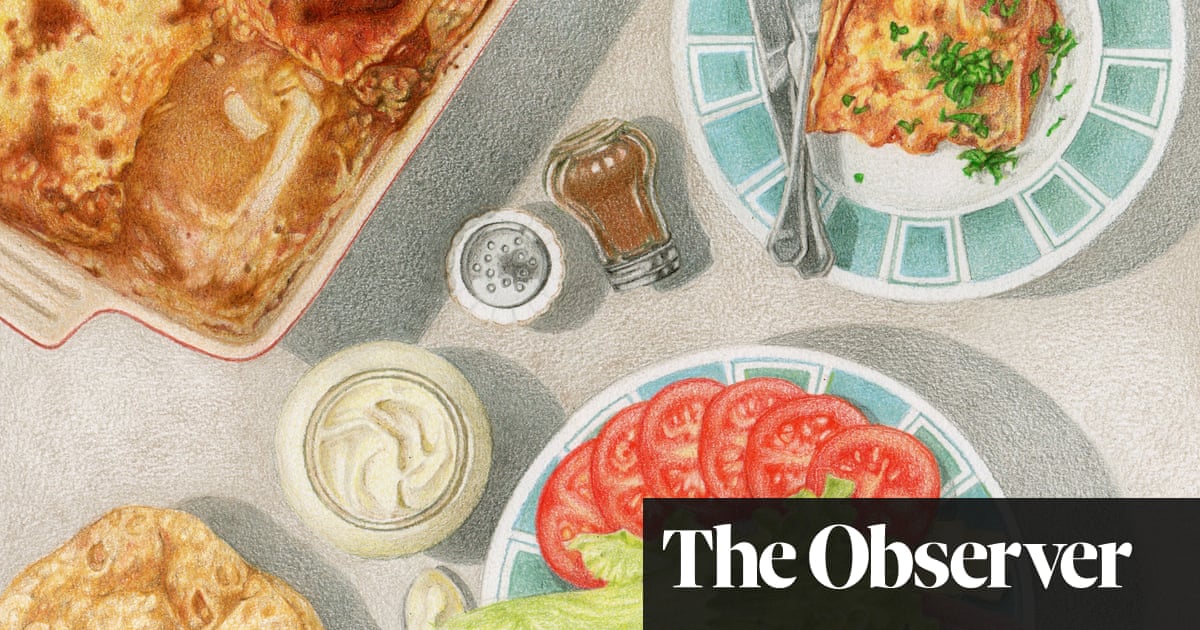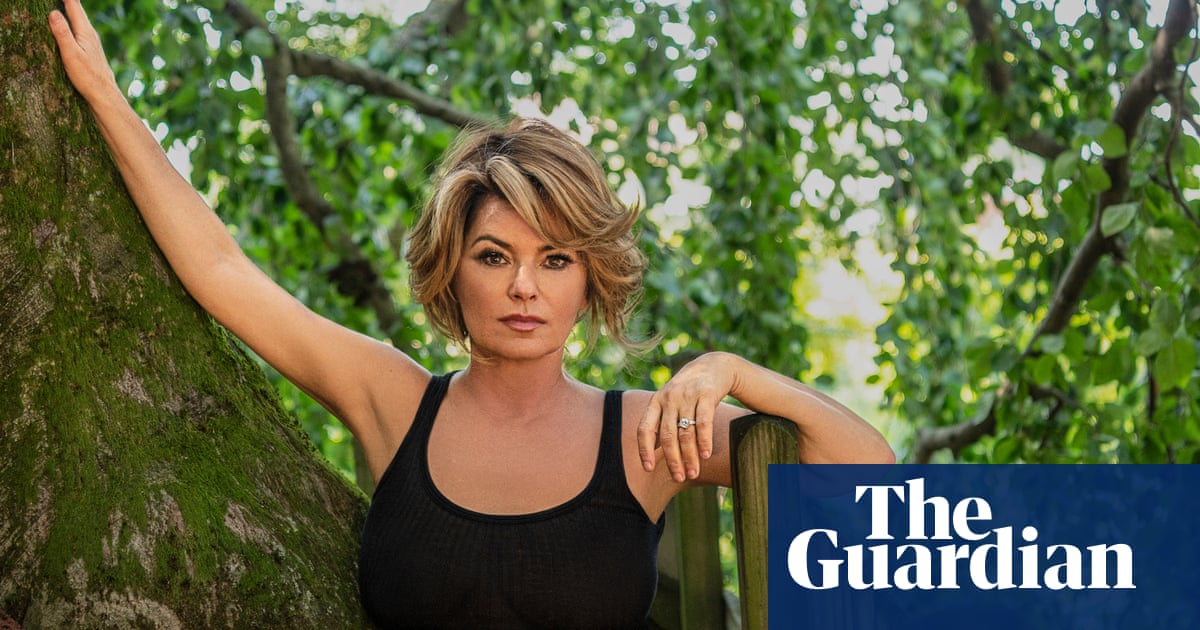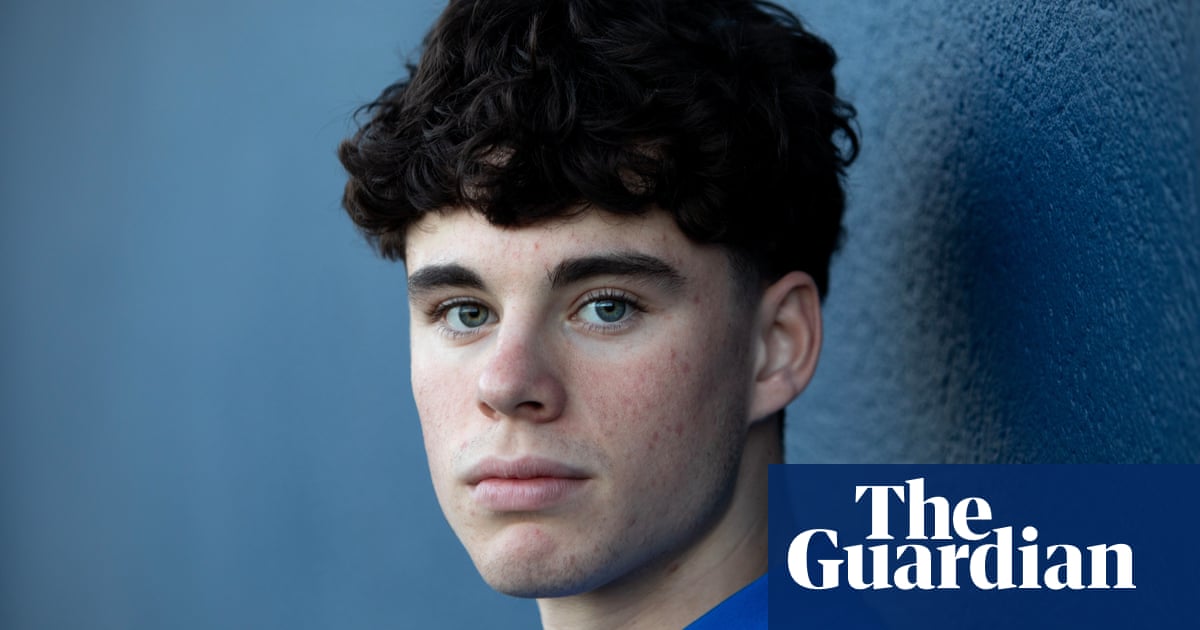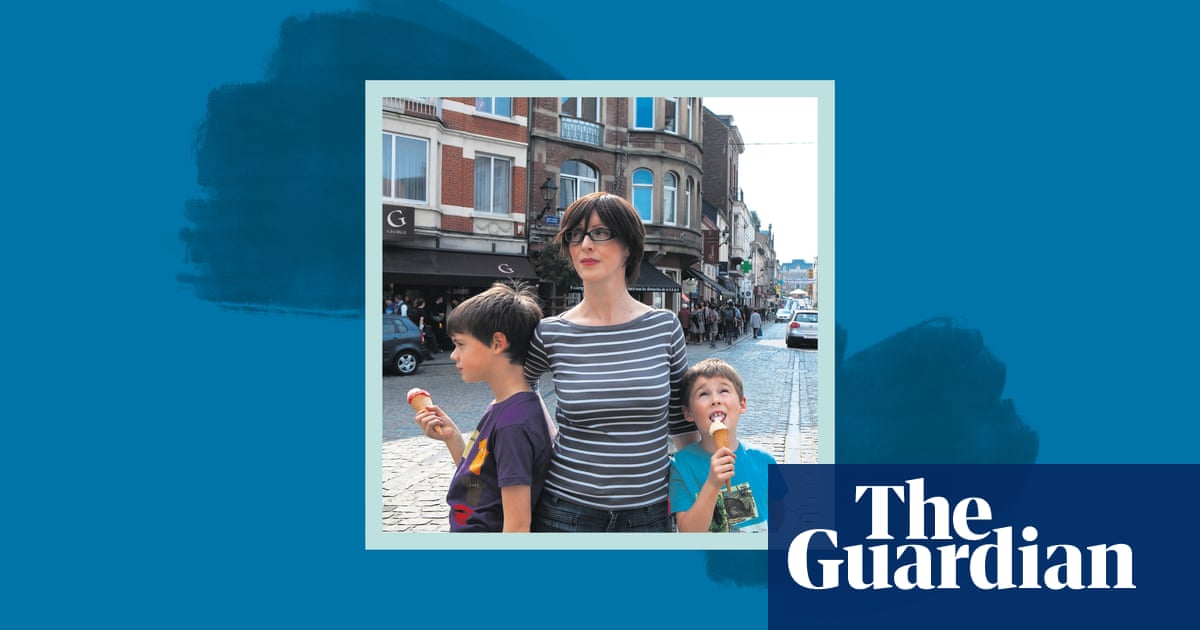
When I was 12, a bespectacled boy with a shock of thick hair and his forearm in plaster gave me the first Harry Potter book. We were at that age when gifts need little occasion, and this marked the last day of our first year of secondary school. It was 1999, and the book was unknown to me. I was mildly embarrassed by its childish watercolour cover, but I dutifully packed it in my satchel when, two days later, my family flew to Iran for our six-week summer holiday. On the large, faded floor cushions of my grandparents’ apartment in Tehran’s central district, I read the book aloud, flanked by my twin younger sisters, while the adults took their siesta and scorched air and car horns filtered through the mosquito blinds. We fell for it instantly, rooting for Harry as he was transported from life as a misfit in a gloomy suburban cupboard to the secret world of wizardry in which he found fellowship, adventure and belonging.
In the years that followed, I would read each successive book to my sisters. Even from the start, they were too old to be read to, but it was more gratifying and companionable to follow Harry’s story together, and besides, we could only ever get our hands on one copy. Every now and then one of us would sigh and say, “Don’t you feel sad when it hits you that Harry Potter isn’t real?” We lived in Southend-on-Sea and attended the local school, an underperforming comprehensive housed in a squat brutalist building on the edge of a large council estate. Most of the pupils were poor, and many underfed, which gave rise to an unshakeable fog of hopelessness, shame and anxiety. While there were few children of colour, racism prospered alongside the many other casual cruelties. With our packed lunches and summer holidays, we were the lucky ones (as our parents often reminded us), but we nonetheless lived in hope that the prosaic, heartless world around us was just the opening scene of a story with a stronger narrative, a better set of characters, and the clean justice of magic.
Returning from Iran, we would start the new school year back in Essex brimming with secrets, adapting our unorthodox capers into more mundane retellings. The International Statute of Wizarding Secrecy requires that wizards protect themselves and others by dressing and behaving as Muggles (those without magical ability) and giving no reason for suspicion. So it was that when Harry returned to his aunt and uncle, Petunia and Vernon Dursley, each summer, he had to bear their mistreatment and his cousin’s bullying without recourse to his spells, and without the satisfaction of telling them that he was special in the other world. As any migrant or mixed person knows, I am valued there has no value here. Bodies migrate; worth, like home-boiled jam, doesn’t travel well.
We kept our double lives studiously; so much was at stake. The Islamic Revolutionary Guard Corps defend the Islamic regime, ensuring, among other things, that the Islamic dress code is observed in public spaces. (I was once chastised by guards for wearing a Manchester United cap instead of my scarf.) Yet to us, the Revolutionary Guards’ defence of the law had nothing on the merciless policing of Essex schoolchildren, to whom difference was always deficiency. One September, a classmate suggested I was fibbing about visiting Iran, because wasn’t it a desert or something, and I never returned with a tan. I was stunned into silence. Checkmate. (Derived from the Persian shah mat: the king is flummoxed.) How could I tell that group of freckled white children of St-George’s-flag-flying parentage that I walked the streets of Tehran in hijab and manteau, and that when it’s 40C outside, you drive into the mountains with a pan of dolma – vine leaves stuffed with seasoned lamb, rice and lentils – and picnic after dark, singing “ay dolma dolma dolma/ kazanakay le kolma” (“hey dolma dolma dolma, the pan is on my shoulder”)? I demurred, said we didn’t lie in the sun much.
A girl in the year above asked why I went on holiday to a war zone. I could have told her the last war in Iran ended when we were infants, but we both knew she meant something else: you are weird, your weirdness is tinged with danger. I held my tongue. Our English relatives would telephone to reproach my mother for allowing us to holiday in a place “where they chop off people’s hands”. She would roll her eyes, her pen nib tearing the notepaper beside the phone as she scribbled in quiet frustration.
More recently, one of the twins called me to say she’d met an Iranian boy in her halls of residence. On learning she was half-Iranian, he had called her a mudblood, pointing out that our British mother makes us half-Muggle. My sister and I laughed: we’d spent so long being too foreign and now we weren’t foreign enough. Not long after, I learned that my other sister had a name for white British people with a petty, conformist outlook. Not “Muggle”, which would be too friendly, too anodyne. No, they are “Dursleys”, and we’d grown up in the thick of their judgment.
Our annual trips were marked by important rituals. Before we flew out, we would be given a few pounds to spend in the airport. My older sister would buy a copy of Smash Hits and a packet of Opal Fruits, while I’d save my money, adding it to my birthday and Newroz (Kurdish New Year) funds, which I’d spend in the bazaars, where it would go further. I’d check the exchange rate and would calculate my fortune in tomans. I had learned my Iranian numerals, and would interpret price tags on my own and enjoin my father to stop and haggle for a watch or a pair of trainers.
Smash Hits would be the centrepiece of our trip. At home in England, money spent on something as trivial as a magazine would be seen as wasteful. In the liminal space of the airport, such rules were lifted. My sister would leave it unread until we arrived, preferring, like me, to be fully present for the excitement of the plane journey, revelling in the continual arrival of small gifts that we’d stash, unopened, in our bags – a model plane, salted nuts, wet wipes, earphones – and the joy of whispering about other passengers or laughing at the awkward placenames the little aeroplane hovered over on the map. We found our fellow passengers rude and entitled. They complained about my younger sisters thrutching in their seats, about wailing babies, about the quality of rice in the meal. They were old, tetchy and uncomfortable, while we were pleased as punch, flying back towards our kingdom in big plush seats. As the plane entered Iranian airspace, women would mitheringly retrieve their Islamic dress from their hand luggage. My sister and I would be passed silk scarves by our mother, and would tie them under our chins.
Iran was our Hogwarts, Heathrow Terminal 3 our platform 9¾, the great chubby jumbo jet with a griffin on its tail our gleaming Hogwart’s Express. Diminished by the polite putdowns of the Dursleys of south-east Essex, in Iran we felt like minor celebrities. The first few days of the trip would be taken up with a stream of relatives visiting us at my grandparents’ apartment. We’d greet them with two or three kisses on their cheeks (a custom known as ruboosi), receive a lavish box of delicate pastries, and would then help to serve them sharbat (rosewater cordial), tea, and fruit (an offering they would refuse at first, in line with the custom of taarof).
After a week or so, we’d settle into a routine of taking a mid-morning walk in the searing city air. My mother said the same thing every time, “mad dogs and Englishmen go out in the midday sun”, which made us all feel joyous and silly as we traipsed along the empty pavements past the honking Paykans. My father would slap his palms on the hoods of the grimy cars and they’d stop so we could pick our way across. Sometimes, we’d go to an internet cafe, where our parents would wait beside humming fans while we conducted absurd conversations with our friends on MSN messenger for an expensive 15 minutes. My sisters would beg for bastani, and would eventually be bought ornate pots of ice-cream. I’d have a stick of corn from the grill of a street vendor, who’d dip the popping cob into a bucket of saltwater for a brief seasoning sizzle before presenting it to me. We’d pile into the bathroom on our return and use the bidet to rinse the blackness from our toes, bickering over whose feet were dirtiest, just as back home we’d fight over whose Coco Pops turned the milk darkest.
Lunch would be followed by the city-wide siesta. A thick lethargy would steal over the apartment as my grandparents and parents closed the doors of their rooms, leaving us children alone with a pile of bedding propped in the corner my grandfather’s study. My grandfather was spindly and delicate and could not sleep with the air conditioning on, so the hushed rooms would be left to the ravages of the city’s heat, bringing the dusty smell out of the carpets and sofas, and matting our hair to our temples as we whispered plans for an unsupervised afternoon.
This was the time for Smash Hits. Since it was hers, my older sister would rest the magazine in her lap while we arranged ourselves either side, pinching and elbowing each other in anticipation. The power went to her head. She would decide when the page was turned, or whose sweaty fingerprints were permitted to smudge the pages as we pointed in glee. She’d close it sternly if we made a fuss. Most importantly, she would decide which pages were promised to each of us. The ultimate fate of the magazine was to be cut into pieces, with the photos and lyrics sheets divided among us and our closest cousin, Parastoo, who helpfully had very different taste in music and men. By this point, the thing would be so overhandled and dog-eared, its staples long lost, that I had learned to beg my sister to remove my parts in advance. When I got my cuttings, I’d save them in the pages of a book to be glued into my school planner when the new year started.
In Iran, our family was magically transformed. My timid older sister wore sparkly clothes that had no place in our lives back home, and danced into the small hours, shimmering across the Persian carpets of our relatives’ flats, while I lurked in wonder, baffled as to where she learned to move so bewitchingly, always ready to scarper at the slightest hint that someone would expect me to do the same.
My mother, usually quiet and reserved, would be nabbed by those wishing to practise their English, and would hold forth on all manner of unusual topics, baffling them with rare Lancashire apophthegms as she detailed the intricacies of British food or shopping habits. She grew up in a working-class family in Stockport, and our first family trip to Iran was only the second flight she’d ever taken, yet she adopted the unfamiliar customs and enthusiastic relatives without fuss, noting the parallels where others might have dwelled on the differences, and appreciating, in the absence of a milky brew and a biscuit, the incessant servings of chai and gaz (pistachio nougat). There is a family video of us children squealing in my uncle’s pool, water steadily sloshing over the sides as we laughed and splashed around. Out of sight, but dominating the audio, my mother is going to great pains to describe the variations in the hardness of water between particular regions of the UK. She was overwhelmed by her popularity every summer. Her blue eyes and ruddy cheeks were cherished by our Iranian relatives, but so too was her openness and lack of pretension. She had little interest in jewellery, clothes or status, and this made her quaint and enchanting, even in the eyes of those who did. If everyone in Britain were like her, what an open, straightforward, happy place it must be.
My father migrated to the UK in 1976, three years before the Islamic Revolution. Aged 25, and too handsome for his own good, he had been sent by his older brother to make something of himself. He trained as a photographer, a graphic designer and then a schoolteacher. Like most immigrants, he also trained himself to take up as little space as possible, to make himself small enough to be tolerated. British masculinity demands brash, roguish coarseness, leaving my careful, sensitive father on the back foot. His encounters with men named Roofy John and Big Dave were mediated through football and home repairs, while he kept his more complex self cocooned for more favourable conditions.
In Iran, he became the man he had once been, and it gave us a sense of pride and security in the dubious way that restored masculinity tends to. Like a captive animal dropped back into the wild, we looked on in wonder as he thrived without us. We stumbled in our conversations with relatives, mastering the art of simplifying and carefully enunciating our English, using exaggerated gestures, and drawing on our small reserve of Kurdish and Farsi words. There were many comical scenes: my mother complaining to my perplexed grandmother about the “gasman” (she meant magas: the flies); my grandmother asking my mother whether we wanted “kitchen” kebabs for dinner (she meant chicken). In Iran, our communication became rudimentary, while my father’s wit and cleverness sharpened in his native tongues. He would have the whole room doubled over in laughter as he imitated the many regional accents of Iran, and would tell long, escalating anecdotes that we’d enjoy vicariously through our relatives’ facial expressions and exclamations.
Iranian masculinity is tactile and intimate. My father was jostled, teased and slapped on the back in ways that would have made us nervous back home. He beat his brothers at backgammon, built fire pits to cook kebabs, slept outdoors in a moth-eaten woolly hat, helped to capture snakes and scorpions and gave us tree resin to chew. The crushing weight of life as a foreigner was 3,000 miles away, waiting to be picked up in baggage reclaim on our return.
When I remember my twin sisters on those holidays, it is in that feral stage that is afforded only to youngest children in large families. The two of them ran wild in bright dresses until they were tucked into other people’s beds as parties stretched late into the night. They were often seen wearing one oversized rollerskate each, careering dizzily around the porch and sending all the shoes awry, or bobbing in the plunge pool with a couple of floating watermelons.
I was the middle child, left to find a place for myself in the wide margin between my older sister’s maturity and the twins’ interminable babyhood. I was lauded for my cheekiness and chutzpah, called namaki (salty), and with a pinched cheek granted a freedom that would seed a ferocious independence in adulthood. The gender and respectability norms of life in the UK were adjourned, and without them new dimensions of mischief opened up to me. I nosed in the belongings of our relatives or roamed outdoors, burning things with my magnifying glass or rekindling abandoned barbecues on to which I’d throw discarded plastic, watching the corners lick in on shrinking text while alarming colours rose acrid into my lungs. An older cousin taught me how to make molotov cocktails, which we’d hurl uselessly over the high wall of my Uncle Khosrow’s villa on the outskirts of Tehran into the dusty wasteland beyond. After swimming, I’d forgo my towel and stretch naked against the rough, baking stucco of the back wall of the villa, the sun refracting through the droplets on my squinted lashes, elated to have the light and air on my bare skin. I’d snap the cigarettes of uncles and replace them in their packs, drop cubes of cucumber on pedestrians passing beneath my grandfather’s apartment, eat nothing but chicken and popcorn for days on end. Through early August, I’d lie awake until dawn, wedged between cousins on bedframes under the open sky, counting meteors as the Earth turned through the Perseids shower, yelling every time one flashed across the stars, and being shushed by indulgent aunties.
Every summer, our nervous little nuclear family became the heart of a sprawling community. Parties were thrown in our honour. Relatives usually separated by social status or ancient feuds broke bread together for the first time that year. My meek, over-protective parents wordlessly suspended the rules of home, relinquishing their responsibility to a rabble of adults and older cousins. We rejoiced in the ensuing chaos and stayed up till 2am, eschewed the buffets of rich, steaming dishes in favour of strawberry jelly and crisps. In England, we drank carefully diluted blackcurrant cordial, so pale it was almost grey. In Iran, we’d suck on sweating bottles of Parsi Cola or Shad Noosh orangeade. Iran Air transformed us from being dark, weird, hairy, short kids with bad clothes to being fair, tall, cool and worldly. If there was wizardry in the world, this was it.
All summer, we were smothered with affection. Distant relatives would seize me by the wrist and say “Bah bah!” (wow!), looking me up and down in wonder. I was applauded for my stature (though I was in the bottom row of the class photograph), the lightness of the hairs on my forearms (in school I was conscious of their thickness and reluctant to roll up my sleeves), my light ponytail (which was rounded up to black when described by British friends). The truth is that we were loved because we were family, but we were revered because we were whiter, and we lived in a place of whiteness, a place of money and opportunity. We were too young to see it then, but the same force that laced our days in Essex with anxiety swaddled us in confidence in Iran.
It would be many years before I would have the words to say it, but in the summer we were privileged, and privilege is a marvellous thing for growing girls. It fed the hope that that we held inside our fidgeting teenage shells until we were old enough to stop caring and choose our company more carefully. Unlike my savings, privilege was not a transportable currency, but, like shame, it has a long shadow. We gritted our teeth through the homogeneity of school, ears burning at the racism, raging at the requirement that we make ourselves smaller, getting cleverer and cleverer because there was nothing else to do, buoyed up by the knowledge that special relativity takes metaphorical forms, too. Iran gave us the comfort that being special is relative, and we grew eagerly towards the light of other worlds.
When you leave a house in Kurdistan, your hosts throw a bucket of water out over the doorstep. It’s a superstition, a spell if you will, that makes tangible the hope that you will soon return. I’d remove my hijab and let it unfurl from the window as the car pulled away on the drive back to the airport, watching the seeping darkness on the steps until I could see it no more.
The thud when the plane hit the rain-speckled asphalt at Heathrow jarred us back into the glumness of life in Britain. The airport staff seemed to us like caricatures of Britishness: portly, red-faced people with beady, pale eyes who corrected your behaviour in icy, clipped tones. You could almost see the waves of restrained suspicion rolling off them as these scruffy girls skipped past with their pensive mother and moustached father. It was baffling that, in a country where everything worked so well, everyone was so irritated all the time.
Britain chafed at us for those first few days. My older sister would sob quietly as we drove back to Southend, the reality of the Muggle world and its indignities sliding back into the foreground. None of us attempted to soothe her. I looked away at the sterile, leaden lines of the M25 in this scentless place where nothing meant anything. What could we say? The spell was broken; my sister would have to live with that. My father would mutter a prayer in Kurdish as we tripped over a mound of letters into the sour air of our house, the thick carpets feeling alien underfoot. It was all so muted. Nothing magnificent could happen here.
I’d hover unhelpfully as my parents unclasped the suitcases, a fug of dried limes and fenugreek filling our nostrils. The holiday was over, but there was still the excitement of inspecting my fake branded school bag, shoes, and trainers. They looked so real and enviable in Tehran’s Bazar-e Bozorg, and my father had haggled hard for them while I stood by, getting worked up every time he pretended to walk away. But snatched out from between the bags of dried fruit and silver teacup holders, and held up to the weak light of the dining room, they were garish, wonky and cheap, too shiny to pass muster. Still, a fake Nike school bag was my only offering in the brutal status economy of our school, and my counterfeit Timberlands would pound the parquet corridors until the wooden soles had calloused my heels so completely that my parents forced me to wear an unbranded pair from the discount shop on the high street.
Our school years inched by cruelly, punctuated by long otherworldly summers. We were like tropical plants on a dim windowsill, shooting and wilting with the seasons. The future pressed in, and it became harder to find the time and togetherness to plan and make those long trips. The hopeful water on our relatives’ doorsteps had long ago dried. So many of the elders whose bony grip I still feel around my shoulders died and we did not say goodbye, or thank you, or sorry. We stopped going to Iran, and it lived on in my subconscious like an unclaimed promise. I’d sometimes fleetingly mistake a low bank of cloud on the East Anglian horizon for a grey range of mountains, and my heart would shrink at the loss. They say Kurds have no friends but the mountains, so us mudbloods are half-friendless, with only clouds to look at.
Relations between Iran and Britain curdled, became hazardous. International sanctions were imposed in 2006, leaving my cousins to come of age in a country with a devalued currency, inflated costs of living and depressed wages. As the world opened up to us, it closed on them. In 2011, the UK severed relations with Iranian banks after a report on the Iranian nuclear programme. Sending money, letters and gifts became impossible, forcing us to rely on friends or acquaintances to make space in their suitcases and meet our relatives in the airport. The British ambassador was expelled, and the Iranian embassy in London closed, turning a privately tended discordance into something concrete and frightening. At one point, Iran Air planes were prevented from refuelling in the UK, and British Airways suspended its flights. Our Hogwarts Express was gone. As politics kept us from one home, it marginalised us in the other. The Dursleys of Essex nailed their racism to the mast time and again. Anti-immigrant flyers landed on the doorstep, Ukip banners appeared in windows, two of the top five “vote Leave” constituencies were within a few miles of our family home.
And so the portal at platform 9¾ unceremoniously closed while we were busy with other things, committing us to full-time Muggledom, subsisting on the memories we share in private. I have not been back to Iran, and though in principle there is nothing to stop me, the complexities – personal and political – of navigating both identities as an adult have produced a state of fear, guilt, heartache and nostalgia that amounts to a kind of exile. For every migrant who says they’ll go back and never does, there’s a mixed person who says they’ll be both and can only be one. My thoughts often catch on that failure, like the trolley embedded in the bricks at King’s Cross, whole in neither one world nor the other, with a great thick wall down the middle.












